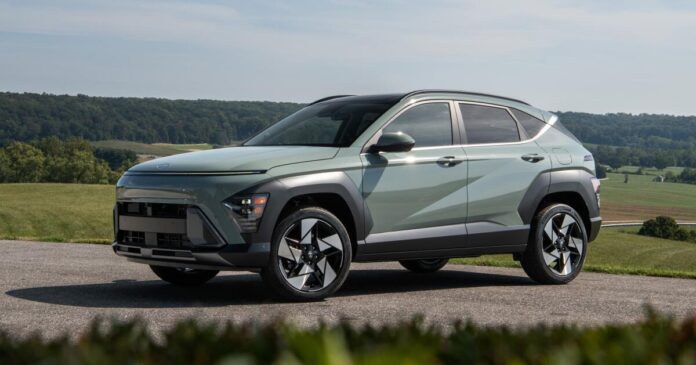"Affordable Electric Vehicles: Your Guide to Budget-Friendly EVs Before Incentives Expire!"
Electric Vehicles Face Affordability Challenges Amid Tariff Threats and Expiring Incentives
As steep tariffs loom over the automotive industry, the cost of electric vehicles (EVs) and plug-in hybrids is on the rise, making the transition to greener alternatives increasingly challenging for budget-conscious consumers. With the expiration of a significant $7,500 federal tax credit for EV purchases approaching, many potential buyers are left wondering how to make the switch without breaking the bank.
Current Landscape of Electric Vehicle Pricing
The average price of a new electric vehicle in the United States has surged to approximately $56,910, according to the latest data from Kelley Blue Book. In contrast, the average price of a gas-powered vehicle stands at $49,740. The anticipated tariffs on imported auto parts could further exacerbate this disparity, with projections suggesting an increase of up to $6,000 in overall vehicle prices.
The rising costs are largely attributed to expensive battery technology and manufacturing processes. Additionally, insurance for EVs tends to be higher, averaging over $4,000 annually—49% more than traditional gasoline vehicles. For first-time EV owners, the installation of a home charging station can also add up to $2,000 to the initial investment.
Despite these challenges, the long-term financial benefits of owning an EV can be significant. The cost of electricity generally remains lower than gasoline, making EVs a more economical choice for many drivers over time.
Affordable Electric Vehicle Options Under $35,000
For those determined to transition to electric without exceeding their budget, several options remain available under $35,000. Here’s a closer look at some of the most affordable models on the market:
Nissan Leaf
- Starting Price: $28,140
- Range: 212 miles
- Overview: The 2025 Nissan Leaf is a compact four-door vehicle that has been a pioneer in the electric vehicle market since its debut in 2010. While it offers a comfortable ride, its CHAdeMO charging port is becoming less compatible with public charging stations, and its storage capacity is limited.
Hyundai Kona Electric
- Starting Price: $32,975
- Range: 261 miles
- Overview: The 2025 Hyundai Kona Electric features a charging capability that allows it to go from 10% to 80% in just 43 minutes with a DC fast charger. Although it has been criticized for its handling, it remains a solid choice for its value and ease of driving.
Chevrolet Equinox EV
- Starting Price: $33,600
- Range: 319 miles
- Overview: Marketed as “America’s most affordable 315+ mile range EV,” the 2025 Chevrolet Equinox EV has received high ratings for its performance and comfort. It boasts over 15 safety features, making it a compelling option for families.
Toyota Prius Plug-in Hybrid
- Starting Price: $33,375
- Electric Range: 44 miles (switches to gasoline thereafter)
- Overview: The 2025 Prius Plug-in Hybrid is ideal for drivers who can charge frequently and typically travel short distances. With 220 horsepower, it offers a sporty driving experience, and its fuel economy ratings are impressive.
Kia Niro Plug-in Hybrid
- Starting Price: $34,490
- Electric Range: 33 miles
- Overview: The 2025 Kia Niro Plug-in Hybrid combines stylish design with excellent fuel economy. While it lacks all-wheel drive, it has received favorable ratings for performance and technology.
Future of Affordable Electric Vehicles
Experts agree that the price of EVs remains a significant barrier to widespread adoption. Automakers are under pressure to produce competitively priced models, especially as the federal tax incentive nears its expiration on September 30.
Ford is planning to launch a $30,000 electric pickup truck by 2027, while new American automaker Slate Auto aims to introduce a basic EV priced between $20,000 and $30,000 by late 2026. Tesla is also expected to release a more affordable version of its Model Y in the coming months.
Despite the challenges, analysts like Dan Ives believe that the current affordable EVs on the market still offer good value, even if they don’t match the range of their higher-priced counterparts.
As the automotive landscape evolves, the push for affordable electric vehicles will be crucial in reducing reliance on fossil fuels and addressing climate change. The coming months will be pivotal in determining how manufacturers respond to these economic pressures and consumer demands.
